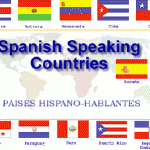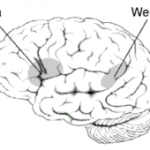Blog-1
I am the daughter of two non-Native English speakers who had just come to the United States only a couple of years before I was born. As a result, I grew up with Spanish as my first language, and did not attain English as a language until I began to go to school. Everytime I would be with my parents I knew to speak Spanish, and everytime I was at school I knew it was time to bust out my English. I do not quite remember ever thinking that it was difficult balancing both languages. As a kid, I learned to speak both and use them accordingly. What I do recall from my childhood was translating English to Spanish constantly either during parent-teacher conferences or even informal occasions like asking someone for help at the store. This became a habit for me, and I truly believe it helped me internalize and consider both of these languages my “first languages.”
Now, even though both of my parents have learned English, Spanish is the primary language spoken at home. The burden for me now is that I get so accustomed to only speaking English while I am away at school, that when I come back home with my parents I sometimes have trouble finding the right words to say. I’d like to think that I’m not losing my Spanish speaking abilities, since it is my first language, but that it’s just a lack of practice that is making me mess up.
Although I’d say English is my stronger language now, I definitely have the competence in Spanish that allows me to always know when something sounds wrong or right without having to know all the technical grammar there is to the language. I saw the difference there is between knowing a language all your life to learning a new second language when I took a beginning Hebrew course. I had so much trouble grasping the language (given, Hebrew is read right to left and includes a whole new alphabet) and even though I would practice religiously and try to memorize the letters and sounds, I could never know when something did not sound right as I do in Spanish or English. Of course, with a vast amount of practice and commitment to learning Hebrew, I would probably have attained this skill, but definitely not to the extent of someone who grew up with Hebrew as their first language.
Although balancing Spanish and English took extra effort growing up (working as my parents’ personal mini-translator was hard work), I consider myself lucky to be bilingual. It’s great knowing that children are able to soak up multiple languages just by being exposed to them as they grow up and that with the right use and practice, these languages could be used competently for the rest of their lives.




 D5 Creation
D5 Creation
Fantastic! You should share your experience with the world! So many anti-language politicians truly believe that speaking two languages will slow down a child’s progress in school, even though linguists know that this absolutely is untrue (if anything, being bi- or multi-lingual appears to help a child’s academic progress– language and music are the most important things for a young mind, really). But do be careful– language use is a mental skill; use it as often as you can to keep it sharp!
-dsb